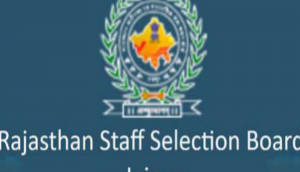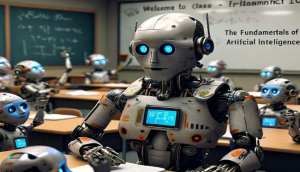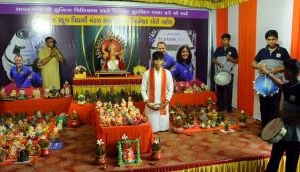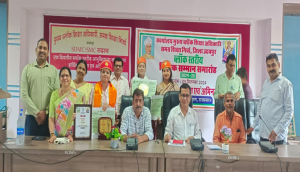
Contrary to popular belief, Nalanda is not the world's first university. It is not even India's first varsity, as that distinction probably belongs to Taxila University.
Nalanda, however, was a varsity much like the modern Ivy Leagues. A public-funded university with an international reputation, Nalanda attracted several international scholars seeking original research work, study of ancient Sanskrit scriptures, Buddhist and Brahmanical studies.
Chinese monks have written extensively on the varsity, shedding light on the day-to-day workings of the institute along with the courses. Scriptures written by monks like Xuanzang, who visited Nalanda in 637 AD, have helped us understand the exclusivity of the institute and the innovative thinking it nurtured.
This led us to ponder over how different the modern world would be had Nalanda continued to exist. What would have happened if the university was not attacked three times by foreign invaders? What if these attacks had not caused the destruction of Nalanda's massive library, with its priceless Sanskrit scriptures and scientific discoveries? What if Nalanda, with its incredible wealth of knowledge, was still taking in students?
Also Read: 8 mind-blowing facts about Nalanda University, the new World Heritage site
In our quest to seek the answers to the above question, we met Dr Shubhra Sharma, an expert on ancient Indian history and author of Life In The Upanishads. We also referred to Mishi Saran's Chasing the Monk's Shadow.
What we found was fascinating. Catch presents eight ways the world would have been a completely different place had Nalanda not been destroyed:
1. The irreplaceable loss of Aryabhata's work in mathematics & astronomy

Aryabhata is credited with discovering the zero (and its place value system) and calculating the appropriate value of Pi (accurate to five decimals). We know this because ancient scholars often refer to his work, crediting him for the above discoveries.
Unfortunately, most of Aryabhata's work is lost and can be accessed only through reference. Important works such as Arya-siddhanta (work on astronomy) and Arya-shatas-ashta have been lost forever.
It has also been speculated that Aryabhata could have been the head of Nalanda since the varsity had an astronomical observatory.
What we've lost:
Losing his work meant that scholars had to re-invent or re-discover every theory. A painstaking process that could have been completely avoided had the complete works of Aryabhata survived.
Also Read: India's UNESCO hat-trick: Nalanda University, Khangchendzonga and Capitol Complex
2. Humans would have entered Space Age a 1000 years ago

In 1543, Nicolaus Copernicus first wrote about the predictive model of universe. He said that Earth was just another planet orbiting the Sun - a theory that was proven by Galileo Galilei in 1632.
The funny thing is, Indians already knew about this theory back in the 9th century BC. Ancient Indian philosopher Yajnavalkya had already calculated that Sun is the centre of the Solar System and that the Earth revolves around it. It is quite possible that Nalanda University had access to Yajnavalkya's work.
According to references in ancient texts, Aryabhata estimated that the planet's orbits are elliptical (not circular) and that the Earth rotates on its axis in 24 hours. He was able to understand the planetary motions and accurately explain solar and lunar eclipses. All this has been mentioned in Aryabhata's only surviving work, Aryabhatiya (499 AD). Some historians state that he may have encountered Yajnavalkya's theory at some point - something which helped him prove the astronomical theories with mathematical deductions.
What we've lost:
Because the world lost volumes of astronomical treatises (including Aryabhata and the work of other ancient scientists) with the destruction of Nalanda University, the onset of Space Age was delayed by over 1,000 years.
What Copernicus concluded in 1543, Arybhata had already deduced in 499. The first man to walk the moon could have done so much sooner. And that is just the beginning.
Also Read: UNESCO declares Nalanda University as World Cultural Heritage
3. A powerful East, a weaker West

Nalanda University was located on one of the important Indo-Chinese trade routes. Chinese and Tibetan monks often visited the varsity, seeking knowledge. Indian monks, too, visited these countries. Sooner or later, these countries would have become important commercial allies.
"China, Russia, India and Japan - the four nations with Buddhist links - would have become natural allies in modern world," says Dr Sharma. "In that case, the world would have been looking up to East (and not West) with all it's scientific ancient knowledge and solid commercial ties," she adds.
What we've lost:
The destruction of Nalanda University led to the slow decay of ties between India and other Eastern countries. Way before the USA became a nation and the UK developed its massive empire, China and India would have already been strong natural allies, a force to reckon with.
4. Unique school of Vad and Vivad (Discussion and Disputation)

With its focus on developmental education, liberal thoughts, pure sciences and experimental thoughts, Nalanda University encouraged its pupils to think outside the box - to say the least. Unlike the current education system, an imposition of views was looked down upon.
'Vad' (talk/discussion), 'Vivad' (dispute) and logical thinking was much sought after. Logic and disputing facts was taught as a subject. There were scholars and monks who acquired the 'great distinction of disputations'.
Chinese monk Xuanzang writes: "Those who cannot discuss questions out of the Tripitaka (Buddhist scriptures) are little esteemed, and are obliged to hide themselves for shame." (Source: Chasing the Monk's Shadow by Mishi Saran).
A school of Buddhist studies, the varsity also had dedicated schools of Brahmanical thoughts and Hindu Vedas. Altogether, Nalanda encouraged liberal thinking and discussions.
What we've lost:
The world we live in seems to have lost its ability to discuss and debate ideas. This holds true especially in India, where books, movies and even statements cause outrage simply for going against the grain. Had Nalanda University thrived, this may not have been the case.
"We would have been a more peaceful human race," opines Dr Sharma.
Also Read: What happened when I pressed the Uber panic button
5. An earlier birth for Communism

Nalanda University witnessed various sects of Buddhism evolve inside the campus. It was, after all, a university that fostered critical thinking and developed a school of disputation.
"Schools of Communism and Capitalism could have developed much earlier, and possibly at Nalanda," says Dr Sharma.
What we've lost:
Being attacked by foreign invaders three times in a span of a few hundred years tore down Nalanda University's schools of thought. Nalanda could have easily been the birth place of Communism, but it wasn't.
6. A tolerant India that is known for taking risks

With increasing foreign attacks on Indian society and religious and cultural beliefs that veered towards intolerance, India has, today, garnered a reputation as a "closed society".
"After continuous attacks on our faith, religion, with barbaric invaders burning our ancient texts and murdering people, we became a closed nation. We started holding everything close to our heart and objected anything foreign," says Dr Sharma.
Buddhist sources often hold Muslim invaders responsible for the destruction of the varsity. Turkic invader Bakhtiyar Khilji destroyed ancient textbooks and killed several monks in Nalanda.
What we've lost:
With the destruction of Nalanda - not to mention the heartbreaking loss of life and property that the invaders unleashed - Indian society closed up overnight, like a lost child.
Much like this child, Indian society held on to the toys she had left close to her heart, never letting it go or experimenting with it.
Also Read: Google is the first page of your resume; 7 sites every student should be present on
7. The lives Chikitsavidya could have saved

Xuanzang's manuscripts point to the existence of medical studies inside the university. It is quite possible that Sushruta Samhita, the ancient Sanskrit text on medicine and surgery (one of the oldest books to survive from ancient times) written by Suśrut, may have found its way to the varsity.
What we've lost:
There's enough historical evidence to suggest the existence of surgical instruments in ancient times.
If Nalanda University focused on dedicated medical studies, the world may have been able to use modern medicine to save lives a lot sooner. Could Ayurveda actually displace Allopathy as the top choice for medical treatment? Now we'll never know.
8. Newton would have eaten the apple and thanked Gravity

Some websites claim that researchers at Nalanda had already discovered gravity. There is no substantial evidence of this and historians refute it vehemently.
But the rumours persist. Could it be because Nalanda scholars were trying to understand why objects fall down instead of flying?
What we've lost:
If this is true, Nalanda University may proposed and proven the theory of gravity way before Newton did in 1687. This means that the world was bereft of some crucial, game-changing scientific information for almost 1,500 years.
The anti-thesis
All good things must come to an end. And while we may mourn the what-ifs and romanticise the past, it remains to be said that there is no way to prove that Nalanda University would have actually established or furthered the theories and the knowledge that we are privy to today.
"There's one thing we can be sure of though. The population of India and China wouldn't have exploded. Because if Nalanda University still existed, many of us would have been shaved monks, focusing on research rather than family," says Dr Sharma.
The possibilities are endless. We can take heart in the fact that knowledge always finds a way to transverse in the universe, come what may.
Disclaimer: This is an effort to present an alternative history of Nalanda University's possible effects on world society and science. Tell us in the comments if you agree or disagree with this view.
Edited by Blassy Boben
First published: 12 August 2016, 5:19 IST







![BJP's Kapil Mishra recreates Shankar Mahadevan’s ‘Breathless’ song to highlight Delhi pollution [WATCH] BJP's Kapil Mishra recreates Shankar Mahadevan’s ‘Breathless’ song to highlight Delhi pollution [WATCH]](https://images.catchnews.com/upload/2022/11/03/kapil-mishra_240884_300x172.png)

![Anupam Kher shares pictures of his toned body on 67th birthday [MUST SEE] Anupam Kher shares pictures of his toned body on 67th birthday [MUST SEE]](https://images.catchnews.com/upload/2022/03/07/Anupam_kher_231145_300x172.jpg)






